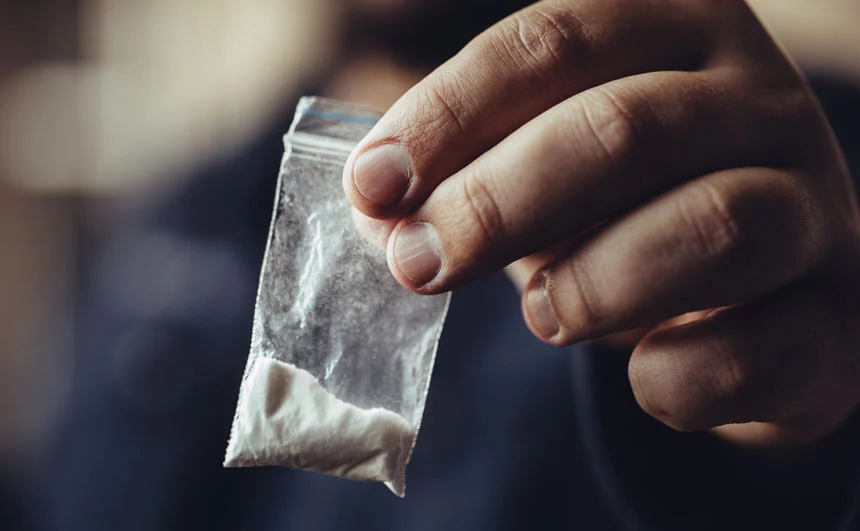Overcoming Fentanyl Withdrawal Symptoms and Understanding Testing
Table of Contents
- Overcoming Fentanyl Withdrawal Symptoms and Understanding Testing
- What is Fentanyl?
- How Long Does Fentanyl Last?
- What is the Half-life of Fentanyl?
- Drug Testing For Fentanyl: All You Need to Know
- FAQs on How Long Does Fentanyl Stay in Your System?
- Treatment Options for Opioid Addiction
- Find Help For Fentanyl Addiction Today!
- Medically Reviewed By
Opioids have become increasingly prescribed to help treat severe pain throughout the US, including pharmaceutical fentanyl. However, with this increased popularity, so too has drug abuse involving fentanyl become increasingly popular.
If you are recreationally using this drug, you may be wondering how long fentanyl stays in your system. Of course, there are many factors that can affect how long fentanyl will remain detectable in your body.
Keep reading to learn answers to how long does fentanyl stay in your system, and how you can get help for opioid dependence today!
What is Fentanyl?
Fentanyl is an incredibly potent synthetic opioid and has been estimated to be anywhere between 50 to 100 times more powerful than morphine. While this powerful opioid can be found as a prescription medication, it is more commonly acquired through illicit drug dealers on the street.
In fact, many other illegal substances are often laced with fentanyl and sold as counterfeit pills, also known as fentapills. Consumers who are unaware of this possibility have suffered severe consequences and even death from overdose. Currently, fentanyl is one of the leading causes of an overdose in the US.
The sheer number of deaths it has caused means that fentanyl addiction and use are considered among the leading causes of death in the entire country.
The Drug Enforcement Administration (DEA) classifies fentanyl as a Schedule II narcotic. This means that, while useful for treating chronic pain in controlled doses and under medical guidance, illicit Fentanyl abuse can be extremely dangerous.
Not only is it highly addictive, but taking fentanyl recreationally can produce potentially life-threatening side effects. This is why it is important to understand just how long Fentanyl can remain in the body, and what effects this powerful drug can have on its users.
How Long Does Fentanyl Last?
When administered in a medical setting, fentanyl will usually be taken through a transdermal patch or as an injectable solution. It can also be prescribed as a throat lozenge or cough drop and will bind with opioid receptors found on nerve cells in the brain.
This reaction is what produces the drug’s pain-relieving effects, as well as the euphoric high it is so commonly abused for. When purchased illegally, fentanyl will more commonly be found in the form of a powder, eye drops, and nasal sprays, or as counterfeit pills.
When consumed orally, the effects of fentanyl will usually kick in within 15-30 minutes and wear off after four to six hours. However, it will still be detectable in the system for up to a few days after consuming it.
When using a fentanyl patch, it can take as long as one or two days for the effects to start kicking in, but they will last for much longer. Finally, intravenous use will have users feeling the effects within as little as 60 seconds, but which will last for only a few minutes.
What is the Half-life of Fentanyl?
Fentanyl typically has a half-life of around three to seven hours. This means that it will take this long for the amount of the drug left in the body to reduce by half. Of course, this time span can change based on your specific body composition and biology, alongside several other factors.
Having a shorter half-life also means that drugs like fentanyl will cause more difficult withdrawal periods than may be experienced with other drugs. Fentanyl withdrawal symptoms are notoriously uncomfortable and the lessened onset of MAT medications means that many choose to stay hooked on illicit fentanyl rather than seek treatment.
Drug Testing For Fentanyl: All You Need to Know
The most common reason why someone would need to be tested for fentanyl is if they are applying for a job, or if their employer conducts periodic drug testing. However, these tests may also be required in medical settings, addiction treatment programs, family environments, or the criminal justice system.
Fentanyl drug testing is not included in a standard 5-panel test commonly used by employers, though as a synthetic opioid, it may show as a traditional opiate on some versions of such tests. In other cases, it can require specialized testing in a professional setting. There is also the issue that many people are consuming fentanyl unknowingly, as it is being increasingly used to lace other illegal substances, such as cocaine, MDMA, and heroin.
As accidental fentanyl consumption has become a leading cause of drug overdose deaths in the US, fentanyl test strips specifically designed to detect this drug have become increasingly available to help people ensure their supply has not been contaminated.
FAQs on How Long Does Fentanyl Stay in Your System?
How Long Does Fentanyl Show Up On a Drug Test?
There are several factors that can affect how long fentanyl will remain in your system after consumption, including:
- Age: younger individuals may have faster metabolisms, eliminating fentanyl more quickly, while elderly individuals may hold this substance in their bodies longer.
- Weight and Build: Those with higher percentages of body fat are more likely to retain Fentanyl in their systems than those who have lower amounts of body fat.
- Genetic Factors: There are specific enzymes that go into metabolizing fentanyl, which means that individuals who have poor enzyme functions may not filter out drug metabolites as quickly as those who do not have this issue.
- Liver Health: Poor liver health can make it more difficult for someone to eliminate fentanyl metabolites, meaning this drug will remain in their system longer than someone who has a healthy liver function.
- The Amount Used: Higher doses of fentanyl will take longer to leave the system than it would for someone who uses a lower dose.
- Method of Use: Intravenous fentanyl use will typically take less time to eliminate, whereas oral and transdermal use will usually take longer.
- Rate of Use: How long and how often a person is using fentanyl can affect the drug’s half-life time. For heavy users, fentanyl will stay in their system for longer periods of time than for someone who does not use the drug often.
- Combined Substance Use: Using other substances with fentanyl at the same time can affect a person’s metabolism, extending the drug’s elimination time and causing it to stay in your system longer.
How Long Can Fentanyl Be Detected In Urine?
Urine tests are the most commonly used for detecting fentanyl use, as they can screen metabolites left behind in the system by this drug. Fentanyl metabolites can be detected by a drug test in urine within two to three hours after using the drug.
Even with just one use, intravenous, transdermal, and oral fentanyl use can be detected for up to three days after a person’s last dose. While shorter than some other drugs, three days can be a very long time to stay without fentanyl if you are a regular user seeking to avoid a positive urine test.
How Long Can Fentanyl Be Detected In Blood?
Blood test measures will often be used as a second resort to urine testing, as these are considered to be more invasive than other drug tests. A blood test can detect intravenous use for up to 20 hours afterward, oral use within 3 days of use, and transdermal fentanyl use for up to 3.5 days.
How Long Can Fentanyl Be Detected In Saliva?
Saliva tests are not commonly used to detect fentanyl use, due to their inability to detect synthetic opioids that have been consumed transdermally or intravenously.
In the event that the drug has been used orally, either through a pill or in a powder form, saliva tests can form of drug test can usually detect the presence of fentanyl within 24 hours of use.
How Long Can Fentanyl Be Detected In Hair?
Unlike other standard drug tests, a hair drug test can detect fentanyl use for up to 90 days after consumption. However, because it is a more advanced drug test, it may take a few days for the results of a hair test to become clear.
This is why most employers and healthcare providers will use more standardized drug testing methods to detect past fentanyl use, as well as the presence of other substances.
Treatment Options for Opioid Addiction
When recovering from opioid abuse and addiction, you will likely experience withdrawal symptoms, which can make the recovery process incredibly difficult. Fentanyl withdrawal symptoms are no exception and can make maintaining abstinence feel impossible.
For many individuals with a substance use disorder, seeking out professional treatment services will be their best chance at achieving and maintaining sobriety. Because opioid withdrawal can be life-threatening in severe cases, most people will generally start their treatment process with a medically supervised detox program.
This can help ensure that they are able to safely and successfully stop their use of fentanyl or other opioids while under constant medical supervision. Medications such as naloxone may also be used to treat the risk of fentanyl overdose and reduce drug cravings.
Inpatient and outpatient rehabilitation services will likely be encouraged once the detox process is completed. These can help you stay committed to your treatment and continue to maintain abstinence from using fentanyl and other substances.
For those who are struggling with co-occurring mental health disorders, dual diagnosis treatment may be necessary. These programs can use behavioral therapies and counseling to address both their addiction itself, as well as any underlying emotional causes of their drug use.
No matter how severe your addiction is, recovering without the right support can be extremely difficult. Talking with your doctor or a Find Addiction Rehabs specialist can help you narrow down which addiction treatment services will be right for you.
Find Help For Fentanyl Addiction Today!
Fentanyl is an extremely dangerous drug, and having an addiction to this opioid can be incredibly stressful not just for the addicted individual, but for their loved ones as well. If you or someone you love is struggling with an opioid use disorder, fentanyl addiction treatment is available!
At Find Addiction Rehabs, we are dedicated to helping people like you overcome their substance abuse issues and re-establish a life of sobriety.
Just by calling our 24/7 hotline, one of our representatives can help walk you through the recovery process and find treatment options nationwide that are right for you.
Make the confidential call now, and get started on your recovery journey today!
Deborah Tayloe is a freelance writer specializing in health and sciences. Deborah earned a B.S.Ed. in Secondary Education/English, accompanied by a Spanish minor. Her writing expertise allows her to craft engaging, impactful articles to help people be well.
In addition, she holds a fully accredited Certificate of Natural Medicine and is a certified Herbalist. Through her understanding of complementary medicine, Deborah helps medical professionals give people the information they need to embrace natural approaches to wellness.
When she’s not working, Deborah trains for 5K races and advocates for animal rights.




